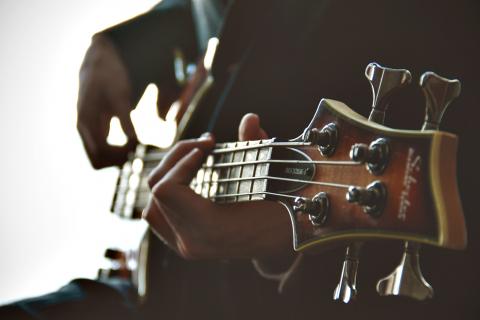
Musicians with hearing loss are certainly not alone. In fact, a study from 2014 revealed that musicians are almost 4 times more likely to acquire hearing loss than non-musicians. The same study also found that musicians were twice as likely to develop tinnitus, or ringing in the ears.
Just because you may be developing hearing loss, your chance to enjoy playing or listening to music isn’t over. Here are 5 tips that will help you to stay positive and continue enjoying the music you love.
Tip 1. Accept your hearing loss.
When one of your favorite things in life involves sound, it can be difficult to accept that you have hearing loss. However, denying that you have hearing loss will not help your situation.
The sooner you accept your hearing loss, the sooner you will be able to take measures to maximize and protect the hearing you have left. Likewise, the sooner you’ll be able to pick up your instrument, adapt, and play like you did prior to having hearing loss.
Tip 2. Rest assured that you are not alone.
When diagnosed with anything, it can be easy to feel like we’re the only ones experiencing it. However, as many musicians suffer from noise-induced hearing loss and tinnitus, you are not alone.
Well-known professional musicians have expressed their struggles with both hearing issues: Four Seasons’s lead singer, Franki Valli, was diagnosed with otosclerosis and had to undergo surgery to acquire improved hearing again. Likewise, Coldplay’s lead singer, Chris Martin, has noted his struggles with tinnitus over the past decade.
Despite these setbacks, both Valli and Martin continue to perform for audiences around the world. Other well-known artists in the music industry with hearing loss include Phil Collins, Eric Clapton, Ozzy Osbourne, Bob Dylan, and Pete Townshend. Let these artists inspire you to continue playing the music you love, whether at home or for the public.
Tip 3. Purchase hearing aids.
If you are experiencing hearing problems, the next best step may be to purchase hearing aids. To determine if hearing aids might be right for you, take a look at these 12 signs. You can also check out this to generally gauge your level of hearing loss.
Budget is often a concern when purchasing hearing aids, but Advanced Affordable Hearing offers hearing aids at a price you can afford.
Tip 4. Give yourself time to acclimate.
Many people assume that as soon as they use their new hearing aids, they will hear just as well as they did before. However, adjusting to your new hearing aids is a process that takes time and patience: In fact, it usually takes around 2 weeks to acclimate.
While you will hear better, you will definitely hear differently than you have in the past, and music might sound a bit different than before. As a musician, a part of the adjustment process may include re-familiarizing yourself with what various notes, chords, and your voice sound like.
If you are looking for more information on what you should expect with new hearing aids, check out our in-depth blog post. We also have a great YouTube video that walks you through this adjustment period.
Tip 5. Protect the hearing you have left.
Whatever your level of hearing loss may be, the hearing you have left is worth protecting. As mentioned, musicians have a strong likelihood of acquiring noise-induced hearing loss, or hearing loss from exposure to dangerous sound levels for extended periods of time.
For musicians, noise-induced hearing loss occurs when you listen to loud music on your headphones, practice your instrument, or hold live performances. However, instances like these don’t have to damage your hearing.
Some ways to protect your hearing are: Limit the amount of time spent wearing headphones, wear in-ear monitors rather than use floor monitors, stand aside from speakers during live performances, and wear hearing protection (ear plugs) when attending concerts. Generally, for the best hearing health, reduce your exposure to dangerous sound levels.
How Can We Help You?
At Advanced Affordable Hearing, we want you to be able to enjoy listening to and playing the music you’ve always loved. We hope that we can help you on your journey to improved hearing.
If you’d like to say goodbye to suffering from hearing loss, contact us now.
